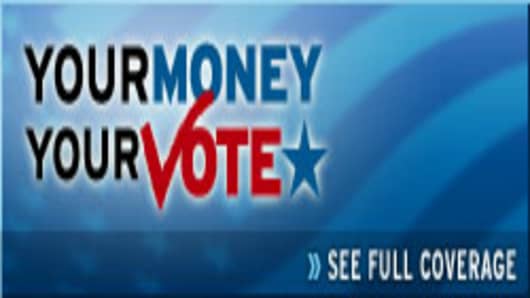Calling all shoppers: If the presidential elections were held today, for whom would you vote? It turns out your shopping habits could be an indicator of that decision, according to a recent survey.
Wal-Mart, Kohl's and JCPenney shoppers said on average they would vote for John McCain (42.6 percent) over Barack Obama (32.2 percent) with just over 21 percent still undecided. At Macy's and Target, however, it was almost the exact opposite result, with Obama (44.35 percent) edging out McCain (33.4 percent), and just 18.9 percent still undecided.
Some 7,800 people who participated in the open-answer survey were asked about the economy, spending habits, personal finances and political affiliation.
“Looking at such detail as how specific retailer shoppers are planning to vote in November provides helpful insights into the mood of shoppers and voters,” says Gary Drenik, president of BIGresearch.
Wal-Mart appeals to people with a more conservative bent, according to Lars Perner, professor of clinical marketing at the University of Southern California, because of the store’s focus on efficiency, self-reliance and frugality. Likewise, Wal-Mart’s presence in rural areas may also help explain some of the survey results.
“Wal-Mart is usually criticized by groups, in this case Democrats, for its labor unions and its extensive foreign product sourcing. This may tend to offend some,” says Perner.
In contrast, Perner said that Target has a more suburban presence aimed at the younger generation. The company is more concerned with its “hip image,” and special produce layouts, appealing to younger customers—arguably an image that supports Obama’s idea of change.
Perner also pointed out that the companies' logos could communicate subtle differences behind their values.
“You will notice that Target’s logo is red—a forceful and aggressive color compared to Wal-Mart’s is a blue—generally a more reliable, conservative and common color,” he says.
BIGresearch’s survey showed similar correlation results during the 2004 presidential elections, where Target and Macy’s guests stated they were more likely to vote for John Kerry while Wal-Mart, Kohl’s and JC Penney customers were more inclined to vote for George Bush. So are the statistics and results mere coincidences?
Shoppers, meanwhile, aren’t putting too much stock in the numbers.
“I just come [to Wal-Mart] because it’s the closest place to my apartment,” said Jonathan Dean, a graduate student who was surprised by the survey results. “My whole family always shops here and we’ve always been Democrats.”
Some were even doubtful.
“I don’t think there is a relationship between shoppers and party affiliation,” said Walmart shopper and Republican Kelsey Lehane. “Shoppers shop based on convenience.”




